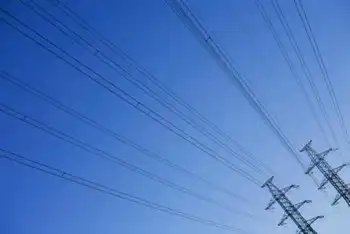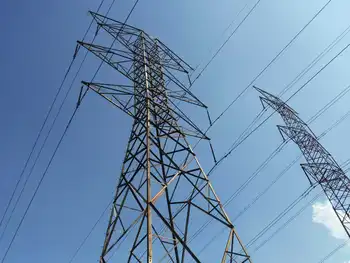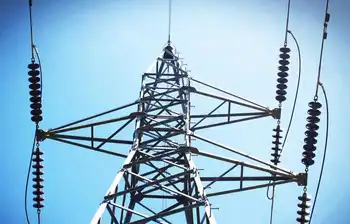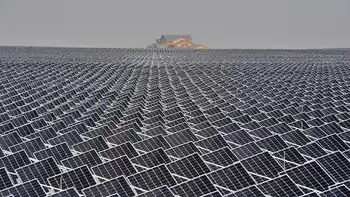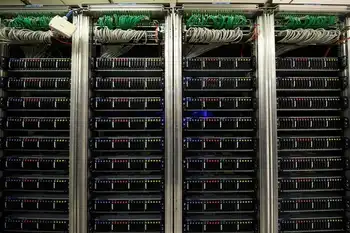Australia moves to build high-speed network
By New York Times
Substation Relay Protection Training
Our customized live online or in‑person group training can be delivered to your staff at your location.

- Live Online
- 12 hours Instructor-led
- Group Training Available
Prime Minister Kevin Rudd said the eight-year, $31 billion project would create up to 37,000 jobs at the peak of construction, giving a lift to the economy as retail spending slumps and mining companies cut workers amid weakening demand for Australian metals.
The plan is “the most ambitious, far-reaching and long-term nation-building infrastructure project ever undertaken by an Australian government,” Mr. Rudd told reporters.
The governmentÂ’s announcement was a surprise rebuff to five private telecommunications firms, including Optus of Singapore and Axia NetMedia of Canada, that had been bidding to build a slower, less expensive network, with fiber-optic cables reaching as far as local nodes, worth around 10 billion dollars.
But Mr. Rudd scrapped those proposals in favor of a superior but more expensive network that will deliver broadband speeds of up to 100 megabits per second — fast enough to download multiple movies simultaneously — to 90 percent of Australian buildings through fiber-optic cables that extend directly to the premises. The remaining 10 percent will receive upgraded wireless access.
Analysts said the government-sponsored project would be the most ambitious fiber-to-the-premises network to have been undertaken by any nation and would be watched carefully by other governments considering Internet infrastructure spending as a way to stimulate growth as the global economic crisis continues.
The Britain, Canada, Finland, Germany, Portugal, Spain and the United States have all included measures to expand broadband access and to bolster connection speeds in their planned stimulus packages.
“Compared to what has been done elsewhere, this is quite a unique situation,” said Laurent Horrut, a telecommunications analyst at J.P. Morgan.
Most developed countries have relied heavily on private-sector spending to upgrade their Internet networks, and those that have pledged public money have come “nowhere close” to the level of spending announced by Australia, he said.
“This will set Australia up as potentially one of the international leaders here,” Paul Budde, an independent telecommunications analyst, said in a statement posted on his blog. “This government understands the trans-sector approach that is needed to stimulate the digital economy.”
The government would make an initial investment of 4.7 billion Australian dollars in the enterprise, in which taxpayers would hold a 51 percent share.
The remaining costs would be financed by investment from private companies and the sale of infrastructure bonds. Once the network was fully operational, Mr. Rudd said, the government would sell down its interest within five years.
Mr. RuddÂ’s conservative opponent, Malcolm Turnbull, and some analysts criticized the plan, saying the cost of the project would likely be passed to consumers in the form of higher Internet fees. They also questioned whether consumers would embrace a fixed-line, fiber-to-the-premises network over increasingly popular wireless services.
Even those who agree that the proposal is both sensible and achievable said setting the right price for companies to access the network would be “a major challenge.”
“A low price will discourage private investors, but a high price will discourage consumer uptake and service innovation,” David Kennedy, research director at global advisory and consulting firm Ovum, said in an e-mailed statement.
While most analysts agree that investing in communications technology makes economies more competitive, some are skeptical about whether long-term spending on communications infrastructure will provide the short-term stimulus needed to pull countries out of recession.
The plan fulfills a 2007 election promise Mr. Rudd made to overhaul the countryÂ’s sprawling, antiquated Internet infrastructure. But the government is also holding the project up as a job-creating form of fiscal stimulus in a time when the private sector is shedding jobs at a faster-than-expected rate.
On Tuesday, the Reserve Bank of Australia cut its benchmark cash rate by 0.25 percentage point to 3 percent, its lowest level since March 1960, amid signs the once-booming economy is continuing to deteriorate. The bank has so far slashed 4.25 percentage points from the cash rate since September in a bid to stop the country from slipping into its first recession in nearly two decades.
According to government figures released last week, retail sales fell 2 percent in February, the biggest one-month drop since the introduction of a 10 percent goods and services tax in July 2000.
Unemployment data has also gone from bad to worse. Australia and New Zealand Banking said Monday that job advertisements in newspapers and on the Internet had dropped 8.5 percent from February to March and a staggering 44.6 percent from the year before. It warned that unemployment could exceed 8 percent by next year.






